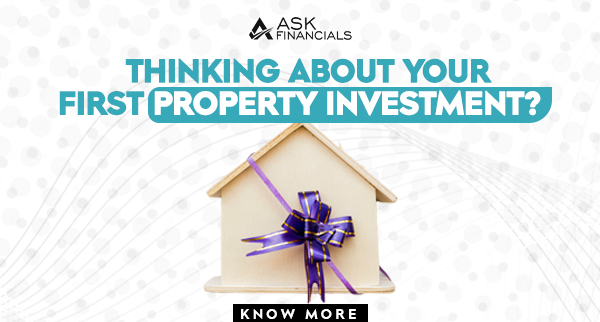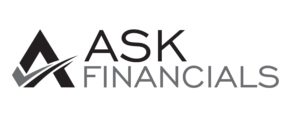If you’ve been saving money for a while and think you’re ready to buy your first property, here are some important things you should know to make a smart choice.
Keep in mind that property prices can change a lot and without notice. This means that even though the value of your home might go up, it could also go down, which could mean you break even or even lose money, based on how long you hold on to it.
Due to property prices changing all the time and the market is hard to get right, we’ve put together a list of the best tips to help you start investing in real estate the right way. Here are our five best tips for buying a house in Australia for the first time:
Know your finances
It may be alluring to immediately dive into property investment once you have accumulated the necessary funds; however, there are additional factors to consider beyond the initial deposit when investing in properties. The acquisition of a property for investment and the acquisition of a residence for personal use are two distinct entities. Many first-time property owners make the error of assuming that the finances are identical for both properties. However, if you are not utilising the property you have purchased for personal purposes, you may encounter unexpected expenses.
When investing in a property, it is important to consider the following costs:
- Loan application fees for investment loans
- Lender’s mortgage insurance for substantial, lump-sum deposits
- The typical government levies that apply to all properties
- Professional examinations and conveyancing
- Strata fees for communal areas of individual properties
- Landlord insurance
- as a landowner, maintenance and repair expenses
- Costs associated with property management
- Costs associated with rentals that are vacant
- Other fees and taxes that are specifically designed for landlords
In the event that you want to sell the homes you purchase in the near future (a practice known as “flipping”), for instance, the precise items on this list may change. Whatever the case may be, the aforementioned is relevant if your goal is to generate passive income from renting out an investment property over the long run. It’s crucial to enter the world of real estate investing well informed on all the expenses involved so that you’re never caught unawares.
Have hands on research
New property owners often make the mistake of picking a property based on its face value alone, without doing the study needed to ensure they get the best deal. With some extra work, you can ensure you get the most out of your investment and choose a home that meets your long- and short-term goals.
What should you look into then? Some good places to start are with the basics, like how much similar homes are selling for, how much other owners charge for rent, and even new construction in the area. You could also find out more about the nearby services, like schools and public transportation, and see if there are any plans to add more of them soon.
Plan to grow your money
This is related to the last principle, which is that you should do your own study. A decent long-term investment bet is to choose a growing location if you’re thinking about investing in real estate there. Potentially developing areas often have plans to improve transportation options or build new schools in the near future.
Keep in mind that residential development and commercial development are not the same thing. Although it’s wonderful news for investors when there are new shops, office buildings, and transportation hubs, a huge number of property projects won’t always boost your growth. Choosing a location with increasing facilities will always make your rental property more appealing to tenants, which may improve your profit growth.
Always have a plan how you will manage your properties before you complete the sale
This is as true in property management as it is in any other field: an investor’s chances of success increase if they are well-prepared. You might save money by doing some of the general management duties on your own if you’re purchasing a property near to your home. On the other side, you’ll need to be well-versed in all aspects of property management and lightning fast at fixing things, screening renters, inspecting properties, and even evicting troublesome ones.
One solution is to hire a specialised business if you’d rather not be actively involved in managing the property. A property manager will handle all the day-to-day details, relieving you of all the stress, for a fee that usually ranges from 7 to 10% of your weekly rental revenue. Hiring a property management business might be the way to go if you’re purchasing a home in a distant state or have another full-time job.
Always think like a business person
Because you own something, it can be hard not to feel connected to it. For sure, you should be proud of your own home and think of it as yours. But rental houses are more of a business than a personal possession. Moving rental properties from a hobby to a business is a great way to think about them. This will help you separate your heart and mind when managing that property.
Adding to that, having a rental or trading home is its own business. You have to make sure that your financial obligations and goals are met. You also have law and government duties to fulfil, and you need to make sure that everything is handled correctly for long-term success. If you think about it that way, you’ll do much better whether you have one business property or twelve.
Tip for the day
No one loves taxes, but property investors should include them in their management list. Taxes aren’t always negative for property ownership. If you acquire a negatively geared property with more interest and other expenses than revenue, you’re paying more for your company than you make, which might lower your income tax.
If your property is profitable, you’ll pay more income tax. If you sell your property later, you may pay capital gains tax on the proceeds. Not including purchasing and selling charges, commissions, legal fees, and stamp duty, this figure may be less than you expect. Capital gains tax is only due on 50% of your earnings if you’ve held your investment property for more than 12 months.
Property investment tax is mostly about paying, but there is another aspect. Investment properties provide tax savings on a variety of rental properties. This includes:
- Advertising costs
- Property management fees
- Loan fees/interest
- Strata, council, and land tax
- Building and landlord insurance
- Repair and maintenance costs
- Accounting expenses
This list isn’t complete, so explore more to see what you may claim. A trained accounting agency may help you optimise tax benefits.
Knowing what to anticipate might help you succeed when investing in property for the first time. The more you prepare, from funds to research, the simpler it will be.
Want to have more information
The profits you get from a large investment, like any other, are highly dependent on your level of preparation.
Talking to your advisor (or us, if you don’t have one) can be a good idea for the time being.
Want more information about the home loans we offer? Just give us a call at ASK Financials and one of our experts will be happy to help you out.


